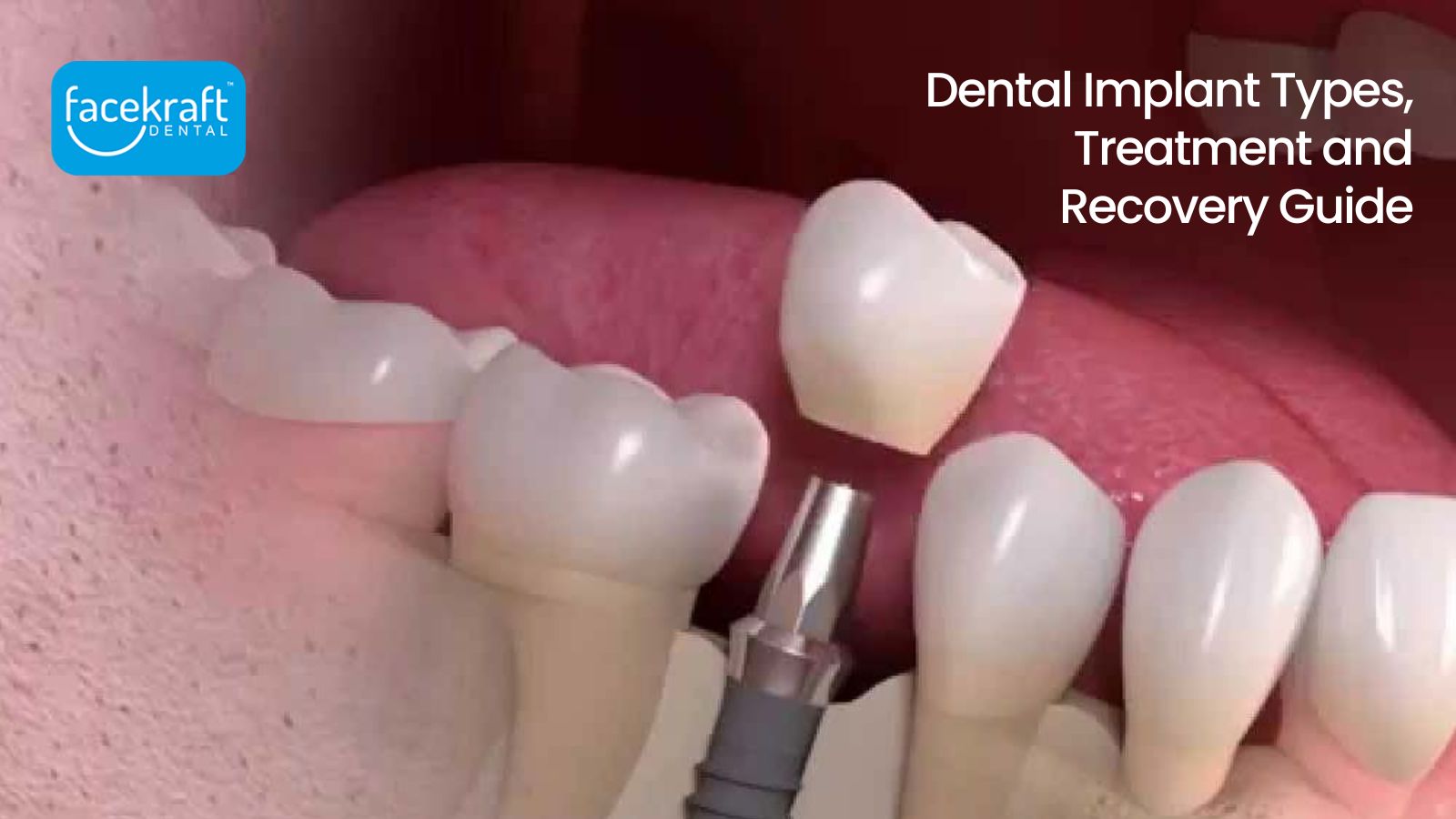Have a perfect smile!
Dental Implant Types, Treatment and Recovery Guide
Dental Implant Types, Treatment and Recovery Guide

Dental Implant Types, Treatment and Recovery Guide
Dental implants are a popular and effective way to replace missing teeth. They provide a stable and long-lasting solution that can improve both the function and appearance of your smile. Here is a guide to dental implant types, the treatment process, and the recovery period:
Types of Dental Implants:
Endosteal Implants:
- These are the most common type of dental implants.
- Placed directly into the jawbone.
- Typically made of titanium, they provide a strong foundation for artificial teeth.
Subperiosteal Implants:
- Placed on or above the jawbone.
- Suitable for patients with a shallow jawbone who may not be candidates for traditional implants.
All-on-4 or All-on-6 Implants:
A full set of teeth is supported by four or six implants, providing a fixed and permanent solution for edentulous patients.
Mini Dental Implants:
- Smaller in diameter than traditional implants.
- Often used in cases with less bone density.
Treatment Process:
1. Initial Consultation:
- Evaluation of your dental and medical history.
- X-rays and scans may be taken to assess bone density and structure.
2. Treatment Planning:
- A personalized treatment plan is developed based on the assessment.
- The number and type of implants are determined.
3. Implant Placement:
- The implant is surgically placed into the jawbone.
- Healing time varies, usually a few months, during which the implant fuses with the bone (osseointegration).
4. Abutment Placement:
- Once the implant has fused with the bone, an abutment is attached.
- The abutment serves as a connector between the implant and the artificial tooth.
5. Restoration:
- A custom-made crown, bridge, or denture is attached to the abutment.
- The restoration is designed to match the natural appearance of your teeth.
Recovery:
Immediate Recovery:
- The initial recovery period involves managing any discomfort or swelling.
- Patients are often prescribed pain medications and antibiotics.
Osseointegration:
- This process can take several months as the implant integrates with the jawbone.
- A temporary restoration may be placed during this period.
Final Restoration:
- Once osseointegration is complete, the final restoration is attached.
- Regular follow-up appointments are necessary to monitor the healing process.
Postoperative Care:
- Maintain good oral hygiene practices.
- Follow any postoperative instructions provided by your dentist.
- Attend regular check-ups to ensure the implants are functioning well.
Long-Term Care:
- Dental implants in Jaipur require ongoing oral care, including regular brushing, flossing, and dental check-ups.
- Avoid habits like smoking that can impact implant success.
Considerations:
- Success Rate: Dental implants in Jaipur have a high success rate only with Facekraft Dental Clinic, but individual results may vary.
- Cost: The cost of dental implant treatment can vary based on factors such as the number of implants, type of restoration, and geographic location.
- Insurance Coverage: Some dental insurance plans may cover a portion of the cost, while others may not.
It’s crucial to consult with a qualified dentist or oral surgeon to determine the most suitable treatment plan based on your specific needs and oral health.
